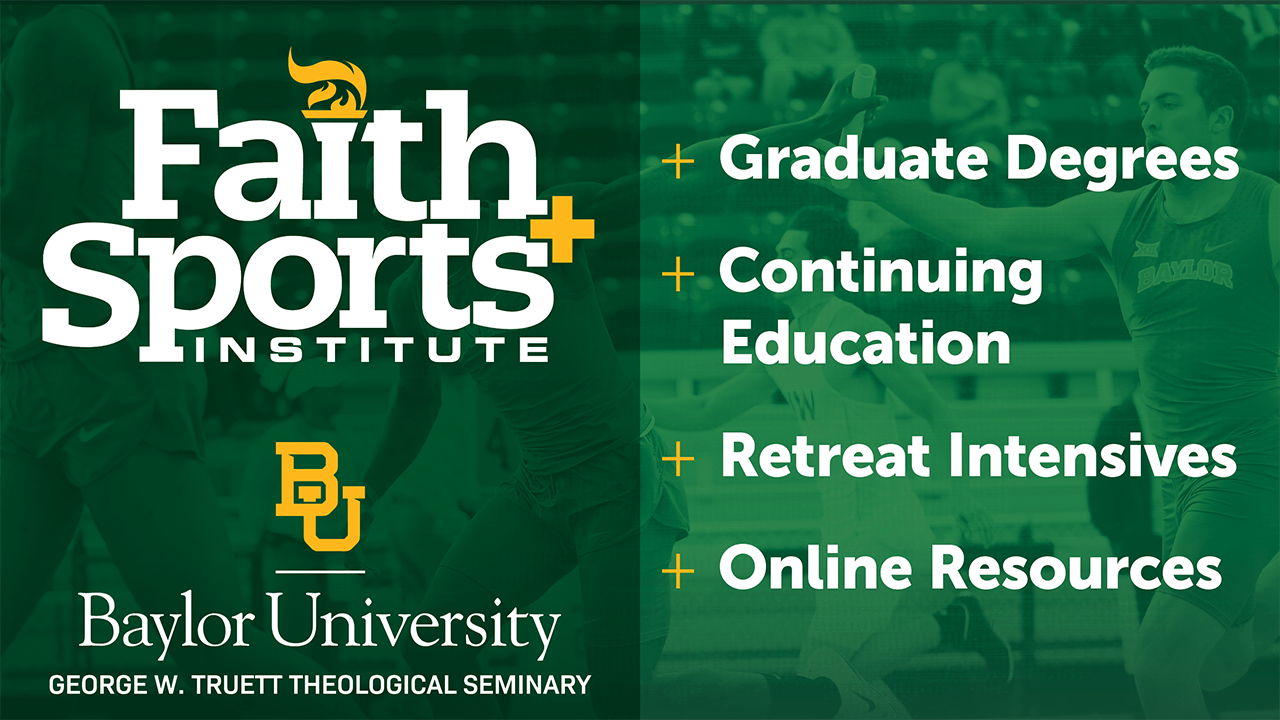Editor’s note: This guest post comes from Keith Wahl, head baseball and softball coach and Assistant Athletic Director at Valor High School in Highlands Ranch, Colorado. Keith has previously written for us about his response to a canceled baseball season.
I accepted Christ later in life, when I was 27 years old. Soon after my conversion and baptism, one of my college teammates reached out to me and we connected over coffee. He was doing okay professionally and personally, but spiritually he was searching for answers. During that conversation he asked me, “Is there a spot for me in heaven?”
Though I was still young in my faith, I knew the answer was easy—yes! Jesus gives us a clear picture in the Parable of the Prodigal Son. No matter how far we run, there is a place for us in God’s grace to return.
What happens when you’re asked a different version of that question in a different context and your answer is ‘no’?
I worked in a private school in the Deep South for a short time as an athletic director. It’s an incredible place and program. It’s very highly regarded athletically, consistently ranked as one of the top ten athletic programs in the state.
During my time at the school we were playing a football game late in the regular season against an inner-city public school. Of the almost 750 students in that school, approximately 95 percent were African American, 4 percent Hispanic, and 1 percent white. Roughly 90 percent of students qualified for free or reduced lunch and the school’s graduation rate was slightly above 50 percent. Our school, meanwhile, was 90 percent white and nearly every student was headed to college after graduation.
During the game I was not thinking of this disparity. But I did notice our opponents’ incredible running back—powerful, balanced, and wearing #13 (I assume in honor of Ezekiel Elliott who had just finished his college career at Ohio State wearing the same number). We won the game easily, but this young Black man rushed for 134 yards on 14 carries for a 9.6-yard average. He was only a freshman at the time.
As a coach and athletic administrator I make it a point to honor players from opposing teams. I connect with them after the competition, praise their God-given abilities, and express gratitude for their effort. After our football game ended, I went up to the freshman running back, grabbed his hand, pulled him in for the “bro hug,” and told him what a great job he did and what a bright future he had in front of him.
His response: “Is there a spot for me in your school?”
How could I reply? As a coach and athletic administrator, if I answer ‘yes’ I’m shuffled off to probation and embarrassment. All I could do was awkwardly avoid the question, wish him the best, and walk away.
In the past couple weeks, as I’ve thought of that story again, it’s brought me back to one of my favorite verses, Matthew 6:10. As Jesus is teaching His disciples how to pray, He encourages them to ask God that “your kingdom come, your will be done, on earth as it is in heaven.”
That’s a mission unto itself—to exercise God’s will on earth so that we bring heaven to this place. And in this moment of unrest, with urgent calls for racial justice, it’s become clear to me that the running back’s question was a declaration that something is off, that heaven needed to come to earth.
A quick study of private high schools, both in the South and across the country, provides some context to this particular problem. After the 1950s, as integration became the law of the land, the creation of “segregation academies” and the enrollment of white students into private schools skyrocketed. According to the Southern Education Foundation, “private school enrollment increased by more than 200,000 across the region—with about two-thirds of that growth occurring in six states: Alabama, Georgia, Louisiana, Mississippi, North Carolina, and South Carolina.”
Meanwhile, as white students flocked to private schools and public schools in wealthy suburban areas, the public schools they left behind faced a declining tax base from which to support their students—a high proportion of whom were Black. Although I didn’t fully realize it at the time, when the running back asked if he could come to my school, it was a request born in part out of a pattern of systemic racism that had allowed my school to flourish, while resources dwindled at his.
Sometimes white people like me have a difficult time recognizing this problem. If we play by the rules, walk the straight and narrow, and end up with some measure of success, we tend to assume everyone else had the same opportunities and choices as us. We don’t realize that our African American and Latino/a brothers and sisters often face a game that is rigged against them, no matter how hard they try to live by the same rules.
The history of our education system is a testament to this fact. And while many private schools have worked to change, we still have a long way to go. Whatever changes we make now cannot immediately undo damage that has been done—the stain of inequality reverberating nationwide for years to come.
Last week during our small group I asked a pastor and a few friends to process these two juxtaposing stories. What’s the answer? Why did God remind me of both of these stories as racial unrest was expressed across the country?
Their encouragement was to sit in the tension and invite others who might read this to feel it as well. So that’s what I’m going to do. Because the truth is, I don’t have the answers. I’m learning and processing and questioning assumptions I’ve held, like many of my white friends.
I do know this, however. I know that Jesus prayed that God’s will be done on earth as it is in heaven. And I know that there is no place for racial inequality in heaven. So as we sit with the tension, let’s prepare ourselves to work to make sure there is no place for it on earth.
 About the author: Keith Wahl is head baseball and softball coach and Assistant Athletic Director at Valor High School in Highlands Ranch, Colorado. For nearly twenty years, Keith has served in high school coaching and athletic director roles. As a coach, he was named ABCA/Diamond Regional Coach of the Year (2011) and Colorado State Coach of the Year (2016). His teams enjoyed success as well. At Valor, he has coached State Champions (2016), Regional/District Champions (2011, 2013, 2014, 2016), and League Champions (2009, 2010, 2011, 2016). He has written and published the Well Coached series, novels about the lessons and hardships of coaching. Coach Wahl has also served the baseball community in many fashions, including serving on the Colorado Dugout Club Advisory Board from 2007-2015. In 2012, Coach Wahl started a baseball-themed Christian devotional called “Bottom of the Ninth” with a pair of Valor Baseball parents. Coach Wahl’s purpose is to serve others so they can fulfill God’s destiny and design for their lives. He hopes to create cultures focused on building relationships, atmosphere, and habits through the living ideas of Jesus Christ. It means the world to have the support of his wife, Alyson, and two kids, Mia and Brady, as he pursues his calling.
About the author: Keith Wahl is head baseball and softball coach and Assistant Athletic Director at Valor High School in Highlands Ranch, Colorado. For nearly twenty years, Keith has served in high school coaching and athletic director roles. As a coach, he was named ABCA/Diamond Regional Coach of the Year (2011) and Colorado State Coach of the Year (2016). His teams enjoyed success as well. At Valor, he has coached State Champions (2016), Regional/District Champions (2011, 2013, 2014, 2016), and League Champions (2009, 2010, 2011, 2016). He has written and published the Well Coached series, novels about the lessons and hardships of coaching. Coach Wahl has also served the baseball community in many fashions, including serving on the Colorado Dugout Club Advisory Board from 2007-2015. In 2012, Coach Wahl started a baseball-themed Christian devotional called “Bottom of the Ninth” with a pair of Valor Baseball parents. Coach Wahl’s purpose is to serve others so they can fulfill God’s destiny and design for their lives. He hopes to create cultures focused on building relationships, atmosphere, and habits through the living ideas of Jesus Christ. It means the world to have the support of his wife, Alyson, and two kids, Mia and Brady, as he pursues his calling.






